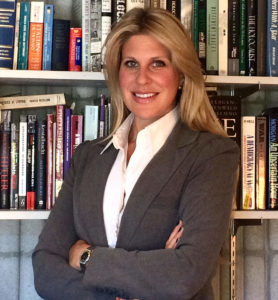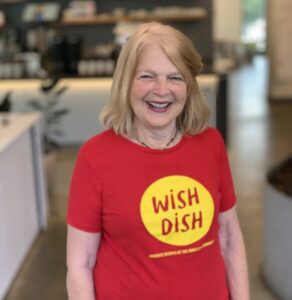Versions of the following piece appeared in the Jewish Journal and the newsletter of the American Federation of Teachers MA (AFT MA), for which Matt served as Editor for six years:


Waltzing Through History: UMass Professor recalls stories of Holocaust-era Vienna
By Matt Robinson
As the number of living Holocaust survivors continues to dwindle, it becomes more important for others to take up their cause and tell their stories so that deniers can be denied and the repetitive roll of history can be stopped…or at least slowed down.
Fortunately, there are scholars like UMass Dartmouth Professor Dr. Ilana F. Offenberger who are ready to heed the call of history.

In her new book, The Jews of Nazi-Vienna, 1938-1945: Rescue and Destruction, Offenberger uncovers new archival materials that expose and explain the extent of the Jewish resistance to the Nazi regime in Vienna. In the book, Offenberger deals with issues such resistance, religious freedom, and tolerance, all with a focus both on Vienna and also with a larger view of the entire world; both during the time of the Holocaust and today.
According to Debórah Dwork, Director of the Strassler Family Center for Holocaust and Genocide Studies at Clark University (where Offenberger received her Ph.D. in History), Offenberger’s book is a “groundbreaking study” of the Viennese Jews who were forced to “negotiate…and endure…the onslaught of Nazi policy.” Focusing not only on the Jews themselves, but also on their individual and communal decisions and choices, the book also asks the painful question of whether the Holocaust could have been stopped if more people had taken their lead and stood up instead of letting Hitler roll over so much of Europe and so many millions of people.
When asked what prompted her focus, Offenberger explains that her grandmother had fled Vienna in 1938 and that her grandfather Fritz (after whom she is named) was also from the area. Though Fritz had survived incarceration at Dachau and Buchenwald, his wife remained silent about their experiences until long after the War. When her grandmother died in 1996, Ofenberger became even more interested in finding out more about how they had lived and about the many who had died.
“This book is the first comprehensive history of the daily life Vienna’s Jews during the Nazi period written in English,” Offenberger asserts, noting that the book incudes actual letters that, Offenberger suggests, “allow the voices of the Nazi’s victims…to speak for themselves.”
Offenberger was given unique access to an archival collection of official papers, correspondence, and other materials concerning the Jews of Vienna during her graduate study. As the collection had only been discovered in 2000, she was among the first to view it. Offenberger was also granted a fellowship at the United States Holocaust Memorial Museum (USHMM) in Washington, D.C., to conduct research.
“As soon as I found the victims’ letters and corresponding documents in the Austrian archives,” Offenberger explains, “I knew that this was a piece of history that needed to be told, no matter how difficult or how much work it entailed… As I witnessed their struggle to resist the tragic future that awaited them, I knew that I had to take these words far and wide and share them with as many as possible: so that the world would know and never forget.”
Over the course of teaching nine courses at UMass, Offenberger (who will be lecturing about her book at UMass Dartmouth’s Claire T. Carney Library next Spring, alongside one of the survivors she interviewed for the book) has “fallen in love with teaching” and hopes that her book will not only inform her students but swerve as a resource to colleagues and other historians.
“The potential audience for this work reaches beyond the scholarly community,” she maintains, “to descendants of the many…Jews who fled and to everyone interested in…cultural and social history…to readers interested in the emigration/immigration experience; the Nazi era; the study of genocide; or ongoing political issues…such as restitution and reconciliation.”
In addition to being a full-time European History lecturer at UMass Dartmouth, Offenberger is also a member of the Holocaust Committee of New Bedford and a former staff member at the Brookline-based Holocaust education organization Facing History and Ourselves (www.facing.org), which she sees as “an incredible institution and resource for teaching strategy and methodology.” She has also presented her findings at such venues as Congregation Tifereth Israel in New Bedford, the Boston Jewish Film Festival, the Boston Public Library, and the Museum of Jewish Heritage in New York.
Looking forward, Offenberger reveals that her next project will “explore and analyze the relationships between Jews and their non-Jewish neighbors in small towns throughout southern Moravia during the Holocaust.” According to her preliminary research, Offenberger has learned that, as in Austria (and elsewhere), many Czechs were willing to put their lives at risk to help their neighbors. “Indeed,” she suggests, “some may have used their location and occupation to deceive German authorities and rescue Jews and their belongings.”
By investigating what prompts people to go to such lengths to help others, Offenberger hopes not only to preserve the stories of the Holocaust, but to offer life lessons for all.
“These questions and others will be explored,” she says, “while attention is also brought to the question of what makes an ‘upstander’ and what defines the role of the righteous in times of great calamity.”
